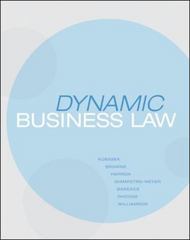Question
QUESTION 14 When the price of a product is increased 5 percent, the quantity demanded decreases 8 percent. In this range of prices, demand for
QUESTION 14
When the price of a product is increased 5 percent, the quantity demanded decreases 8 percent. In this range of prices, demand for this product is:
elastic
inelastic
cross-elastic
unitary elastic
QUESTION 15
In the following,Whichis Not true
A demand curve which is parallel to the vertical axis is perfectly inelastic
If a firm can sell more or less output at a constant price, demand is perfectly elastic
A demand curve which is parallel to the horizontal axis is perfectly inelastic
If the demand for a product is elastic, then total revenue will rise as price falls
QUESTION 16
Among the following statements,Whichis (are) correct
The price elasticity of demand of a straight-line demand curve is elastic in high-price ranges(range
above the mid-point) and inelastic on low-price ranges(range below the mid point)
If the price elasticity of demand for a product is unity, a decrease in price increase the quantity
demanded, but total revenue will be unchanged
If the demand for a product is elastic, then a higher tax will generate less tax revenue
All of the above
QUESTION 17
Of the following, which oneis False
A provincial government wants to increase the taxes on liquor to increase tax revenue. This tax would only be effective in raising new tax revenues if the price elasticity of demand is less than one
One ofthe main determinants of elasticity of supply is the amount of time the producer has to adjust inputs in response to a price change.
Suppose the income elasticity of demand for toys is +2.00. This means that a 10 percent increase in
income will increase the purchase of toys by 20 percent.
Suppose the income elasticity of demand for toys is +2.00. This means that toys are an inferior good
QUESTION 18
From statements given below, select the incorrect one
A positive income elasticity of demand coefficient indicates that a product is a normal good
A positive income elasticity of demand coefficient indicates that two products are substitute goods
A price ceiling means that government is imposing a legal price which is below the equilibrium price.
When government regulates rental price of the residential houses (as the maximum legal price that the house-owner can charge) in a city, it is an example of a price ceiling
1 points
QUESTION 19
If an effective ceiling price is placed on gasoline then:
the quantity demanded will exceed the quantity supplied
a black market for gasoline may evolve.
the federal government must establish some formal system for rationing it to consumers.
all of the above are likely outcomes
QUESTION 20
To the economist total cost includes:
explicit and implicit costs, including a normal profit.
Neither implicit nor explicit costs.
Implicit, but not explicit, costs.
explicit, but not implicit, costs.
QUESTION 21
The short run is a time period in which:
all factors of production are fixed
the level of output is fixed
the size of the production plant is variable
some factors of production are fixed and others are variable
QUESTION 22
The law of diminishing returns indicates that:
as extra units of a variable factor of production are added to a fixed factor of production, marginal product will decline beyond some point
because of economies and diseconomies of scale a competitive firm's long-run average total cost curve will be U-shaped
the demand for goods produced by purely competitive industries is downward sloping
beyond some point the extra utility derived from additional units of a product will yield the consumer smaller and smaller extra amounts of satisfaction
QUESTION 27
Marginal cost:
equals both average variable cost and average total cost at their respective minimums
is the difference between total cost and total variable cost
rises for a time, but then begins to decline when diminishing returns set in
declines continuously as output increases
QUESTION 28
Economies of scale are indicated by:
the rising segment of the average variable cost curve.
the declining segment of the long-run average total cost curve.
the difference between total revenue and total cost.
a rising marginal cost curve.
Step by Step Solution
There are 3 Steps involved in it
Step: 1

Get Instant Access to Expert-Tailored Solutions
See step-by-step solutions with expert insights and AI powered tools for academic success
Step: 2

Step: 3

Ace Your Homework with AI
Get the answers you need in no time with our AI-driven, step-by-step assistance
Get Started


